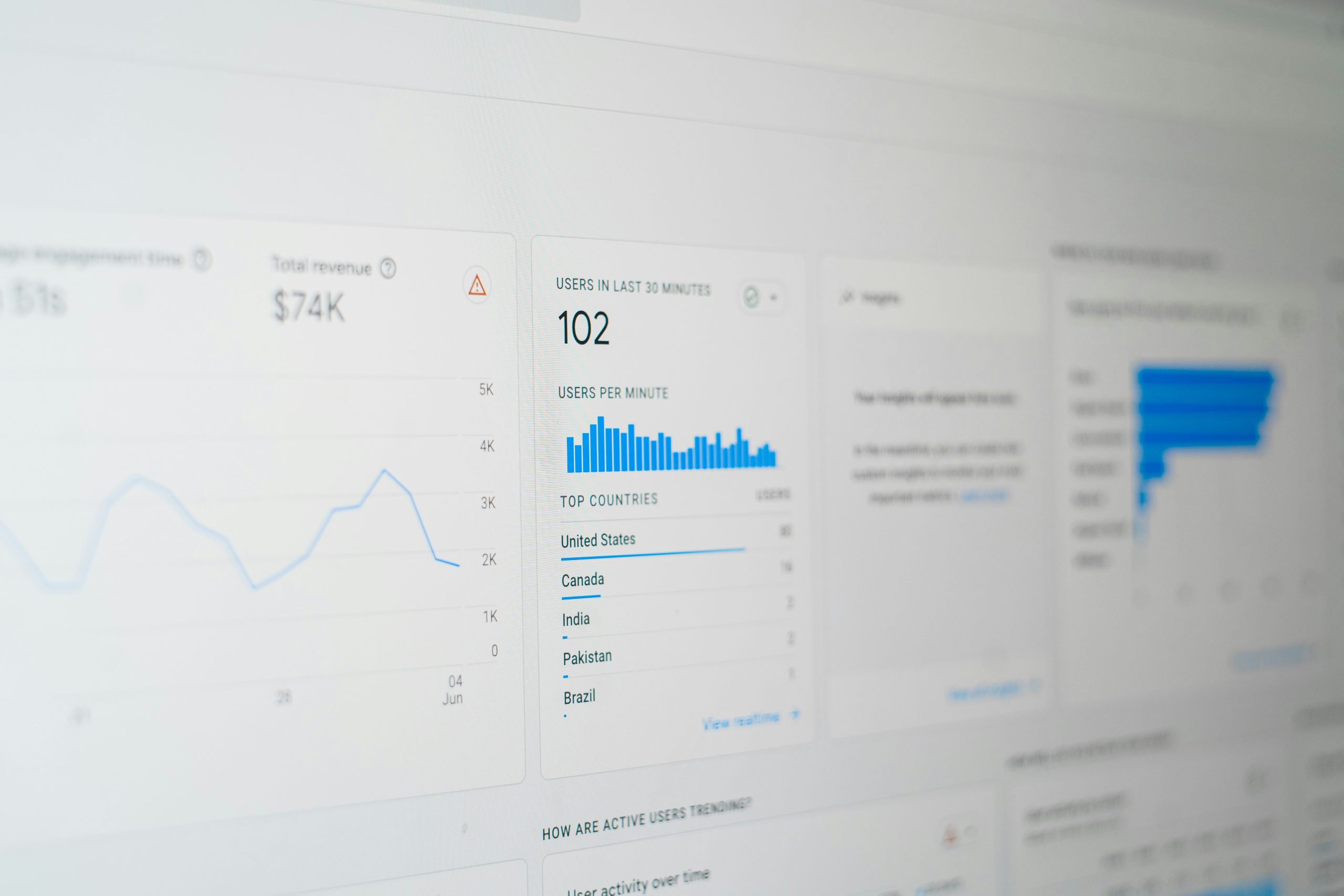We have been hard at work over recent months migrating all our clients websites to GA4. If you manage your own analytics you will need to upgrade as soon as possible to ensure you don’t lose any future analytics data.

As businesses strive to gain valuable insights into their online presence, Google Analytics has been a trusted ally. In a recent development, Google has introduced Google Analytics 4 (GA4) as the future of their analytics platform.
In this blog post, we will explore the transition from Universal Analytics to GA4 and the benefits it brings for businesses seeking to understand their online performance in a rapidly changing digital landscape.
Understanding Google Analytics 4 (GA4)
Google Analytics 4 (GA4) is an evolution of the traditional Universal Analytics platform. It introduces several advancements and features that address the changing needs of businesses in a dynamic digital ecosystem. GA4 emphasises cross-platform tracking, privacy, and machine learning capabilities to provide more comprehensive insights.
One of the significant changes in GA4 is the shift from a session-based model to an event-based model. This means that instead of focusing on sessions, GA4 places more importance on tracking individual user interactions or events. This change offers greater flexibility in capturing user behavior and interactions across various touchpoints, such as websites, mobile apps, and other digital platforms.
Key Benefits of Google Analytics 4
GA4 brings several key benefits that can empower businesses with deeper insights and a more holistic understanding of their customers’ journey.
Firstly, GA4 provides enhanced user journey analysis. With cross-platform tracking capabilities, businesses can track and analyse user interactions across different devices and platforms. This comprehensive view helps businesses understand the complete customer journey and make data-driven decisions to optimise their online presence.
Secondly, GA4 leverages artificial intelligence (AI) to provide automated insights and predictive analytics. The machine learning capabilities embedded in GA4 can uncover hidden patterns and trends in data, enabling businesses to identify opportunities, improve marketing strategies, and deliver more personalised experiences to their customers.
Another critical aspect of GA4 is its privacy-centric approach. With increasing concerns around data privacy, GA4 prioritises user privacy by offering features like data deletion controls and consent management tools. This aligns with evolving privacy regulations and empowers businesses to maintain transparency and build trust with their audience.
Transitioning to Google Analytics 4
Transitioning from Universal Analytics to GA4 requires careful planning and implementation. Businesses should assess their readiness for the transition and understand the impact on their existing analytics setup. Creating a transition plan that includes data migration, tracking code updates, and staff training is essential to ensure a smooth migration process.
Implementing GA4 involves setting up a new property within the GA4 platform and integrating it into existing websites or apps. Google provides documentation and resources to guide businesses through the implementation process and ensure accurate data collection.
During the transition period, businesses can run both GA4 and Universal Analytics simultaneously. This coexistence allows for a gradual transition while leveraging the strengths of both platforms. However, it’s important to note that GA4 will eventually become the standard, and businesses should plan for a complete migration in the future.
Learning and Adapting with GA4
Once the transition is complete, businesses can explore the new reporting capabilities and features offered by GA4. The reporting interface in GA4 has been updated to provide a more user-friendly and intuitive experience. It’s important for users to familiarise themselves with the revised reporting structure and the available insights to make the most of GA4’s capabilities.
Additionally, businesses should leverage the customisation and analysis tools in GA4. Creating custom events, audiences, and conversions allows businesses to track specific actions and goals that align with their unique objectives. The analysis tools and exploration capabilities within GA4 enable deeper insights into user behavior, helping businesses optimise their marketing strategies and drive better results.
Conclusion
Google’s transition to Google Analytics 4 represents a significant step forward in the world of data analytics. By embracing GA4, businesses can tap into enhanced user journey analysis, AI-powered insights, and a privacy-centric approach to data collection. As the digital landscape continues to evolve, adapting to these changes and harnessing the potential of GA4 will empower businesses to make informed decisions and stay ahead of the competition.
Embrace the transition to GA4 and unlock a new era of data analytics possibilities.
